African partnerships
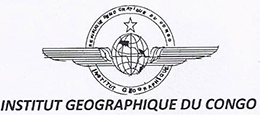
The Congo Geographical Institute (IGC; Institut Géographique du Congo in French, DRC) is a public body created on 7 December 1949 by the decree of the Prince Régent des Belges. After being under several guardianships, it is now attached to the Ministry of Scientific Research and Technology. The corporate name of the IGC remains the measurement, description and cartographic production of the national space. The IGC's mission are :
- To establish and maintain of the geodetic, levelling and gravimetric framework,
- To implement and maintain of boundary markers,
- To undertake aerial photographic coverage and satellite image acquisition,
- To cover the national territory with topographic base maps at scales of 1/50,000 and 1/200,000, derived and thematic maps,
- To carry out cartographic research of general interest corresponding to the activities and production missions of the IGC,
- To create a database and a national cartography providing objective and up-to-date information,
- To ensure the conservation and publication of the data resulting from the above activities in graphic, photographic or digital form.
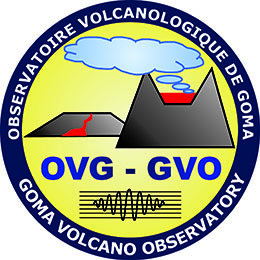
Founded in 1986, the Goma Volcano Observatory (GVO; Observatoire Volcanologique de Goma in French, DRC) is the Congolese scientific institute in charge of the monitoring of Nyiragongo and Nyamulagira volcanoes, in the Virunga Volcanic Province, and the study of impacts related to the eruptive activity.
GVO is also responsible for providing information on volcanoes and their activity to the local authorities and population.
In addition to the administration department, the GVO is divided into 5 units corresponding to specific disciplines:
- Geochemistry Department
- Seismology Department
- Ground Deformation Department
- Technical and Electronics Unit
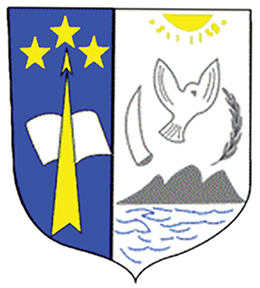
The University of Goma (UNIGOM) is a public university in the Democratic Republic of Congo, located in Goma in North Kivu. Created by ministerial decree No. 055/MINESU/CABMIN/RS/2005 of 5 October 2005, UNIGOM is the result of the status modification of the Centre Universitaire, extension of the University of Kisangani, in North Kivu (from 1996-2005). UNIGOM's vocation is to train students from all social strata, without distinction of ideological or religious obedience, who meet the conditions required for enrolment. Its purpose is to contribute to the development of the country by offering quality education in accordance with national and international standards by organizing action research.
Its mission is threefold: (1) pedagogical or teaching: to train cadres capable of contributing to the transformation of society; (2) scientific and technical research; (3) cooperation and service to society, social participation, expertise and consultancy.
The language of instruction is French. The University organizes 7 faculties (Medicine, Law, Social, Administrative and Political Sciences, Agronomic Sciences, Economics and Management, Information and Communication Sciences, Science and a School of Public Health.
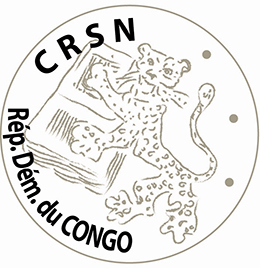
The Natural Sciences Research Centre (CRSN; Centre de Recherche en Sciences Naturelles in French, DRC) in Lwiro, formerly the Institute for Scientific Research in Central Africa (IRSAC), was created on 1 July 1947 with the mission of encouraging, promoting, carrying out and coordinating the study of the human and natural sciences.
In 1975, it became the Lwiro Centre within the Institute for Scientific Research (IRS). In 1982, it was renamed the Natural Sciences Research Centre (CRSN). Today it is made up of five departments dedicated respectively to biology, environment, geophysics, nutrition and documentation.
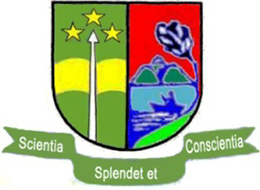
Created in 1993 within the framework of the spin-off of Higher Education and University Institutions across the territory of the DRC, the Centre Universitaire de Bukavu (CUB) depended on the University of Kisangani (UNIKIS) by becoming one of its extensions. It became autonomous on 7 February 2006, under its current name of Official University of Bukavu (UOB; Université Officielle de Bukavu in French, DRC). Its specific missions are:
- To ensure both the training of executives in the most diverse fields of national life as well as the dissemination of knowledge. As such, it provides teaching in order to encourage the blossoming of new ideas and the development of professional skills,
- To organize scientific, fundamental and applied research with a view to producing new knowledge, particularly that focused on the specific problems of the DRC, taking into account the evolution of science, techniques and technology in the world,
- To place available knowledge and skills at the service of social actors in order to contribute to the development effort, and thus to the building of the entire nation.
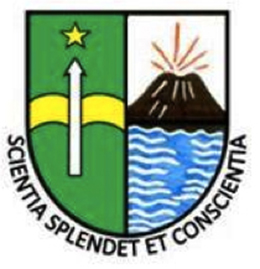
Created on 9 October 1961 under the name Ecole de Régence, then Ecole Supérieure Pédagogique de Bukavu (1964) and Ecole Normale Moyenne (1966), the Institut Supérieur Pédagogique de Bukavu (ISP Bukavu, DRC) is a public institution of Higher and University Education (ESU) in DRC.
Its mission is the training of graduate and bachelor teachers, research in the field of pedagogy and the popularization of the results of this research. It trains, among others, graduates in pedagogy with scientific orientation.
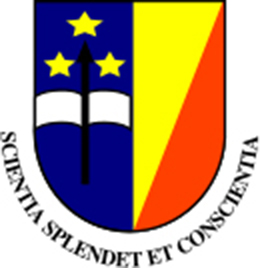
The University of Kinshasa (UNIKIN, DRC) is a public institution that was originally founded in 1954 as Lovanium University. UNIKIN is committed to offering education and training guided by creativity, innovation and excellence.
The mission of the University is threefold: teaching, research and service to the nation. It aims to make the student and the student's contribution a key for the economic and social development of the nation.

The Geological and Mineral Research Centre (CRGM; Centre des Recherches Géologiques et Minières in French, DRC) is the largest institution of geological research in DRC.
The mission of CRGM is to promote, coordinate and execute scientific research and various studies in the field of earth sciences in general, geological and mining in particular in DRC. The execution of the scientific activities takes part in different departments. To reach its goal, CRGM works in synergy with other institutions of the country.
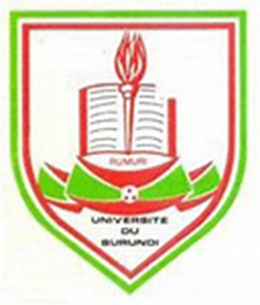
Created in 1964, the University of Burundi (UB, Burundi) is a government institution that currently has 7000 students in 8 faculties and 4 institutes. Its name was then the Official University of Bujumbura. It is the most important public institution of higher education in Burundi. Its ambition is to provide training of excellence based on quality teaching and to be a university of reference in the sub-region. It is under the supervision of the Ministry of National Education and Scientific Research. The University of Burundi is organized into 8 Faculties (Letters and Human Sciences, Law, Sciences, Engineering Sciences, Agronomy and Bioengineering, Medicine, Economics and Management Sciences, Psychology and Educational Sciences).) and 5 Institutes (Physical Education and Sports, Applied Statistics, Applied Pedagogy, Commerce, Administration and Land Mapping).
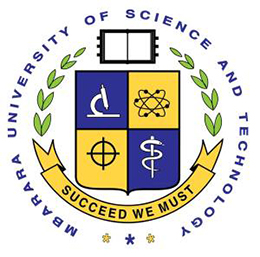
Mbarara University of Science & Technology (MUST, Uganda) is a public university in Uganda. The University was established in 1989. It is one of the eight public universities and degree-awarding institutions in the country. MUST is accredited by the Uganda National Council for Higher Education.
MUST aims to be a centre of academic and professional excellence that provides quality and relevant education at national and international level with particular emphasis on Science and Technology and its application to community development.
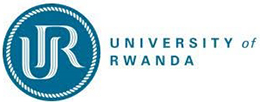
The University of Rwanda (UR, Rwanda) is a public research university. For the last four years, UR graduated the total number of 32,938 students. The objective of the UR is to be a leading University that develops highly enterprising graduates prepared and dedicated to building a more just and sustainable society locally, nationally and globally, with appropriate innovations that advance quality of life. Its mission focuses on supporting the development of Rwanda by discovering and advancing knowledge, committed to the highest standards of academic excellence , where students are prepared for lives of service, leadership and solutions.
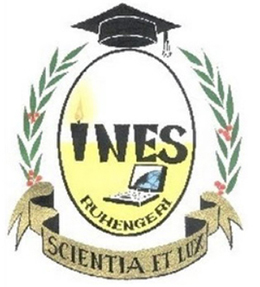
Located in the North of Rwanda, INES-Ruhengeri (Rwanda) is a private higher learning institute of applied sciences. Its mission is to contribute through the interactive conjunction between civil society, private sector and public sector to the national and regional development, by providing specialized university education enhanced by research, in order to create competitive enterprises and well paid employment. Its vision is the universality in each individual; Knowledge in order to unite and better serve the world.” It has officially opened its doors on November 17th, 2003, under the name of “Université Internationale au Rwanda (UNIR)”; but the idea of its creation came in September 2000 under the initiative of Ruhengeri Catholic Diocese. This idea was triggered by a triple motivation: (1) building signs of hope, (2) contributing to unity and reconciliation and (3) contributing to the country’s sustainable development. It got its accreditation by Ministerial Order N° 005/2010/Mineduc of 16 June 2010, and it is only one Rwandan private higher learning institute oriented in applied sciences.
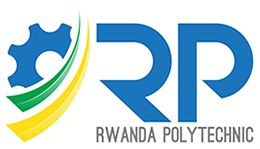
Rwanda Polytechnic (RP, Rwanda) is a public educational institution. Its vision is to provide quality education that complies with applicable standards through vocational education that enables beneficiary to acquire skills required to create jobs and compete in the labour market.
